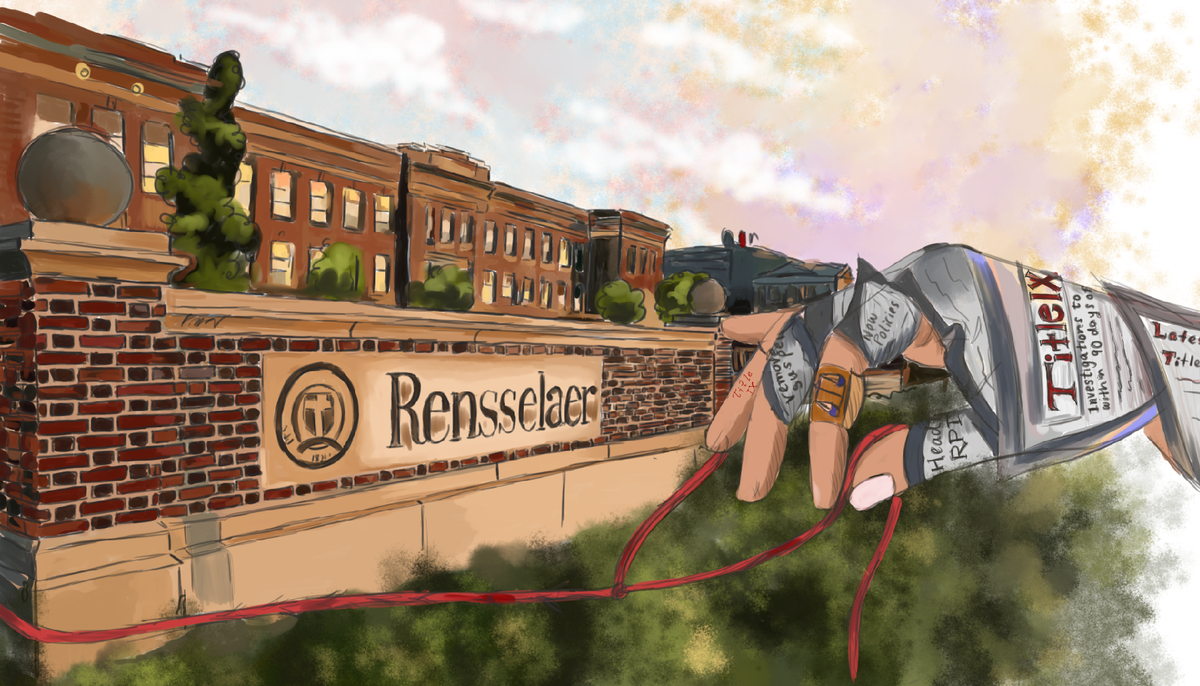Campus de-densification, dining reservation part of new COVID-19 policies
Residential life, including housing, dining, and shuttle services, will be undergoing changes to accommodate social distancing measures, as outlined by President Shirley Ann Jackson and other administrators during the Town Meeting hosted on July 1. Campus density is expected to decrease by 55%, students will have to distance themselves and wear masks at all times, and dining services will operate through a reservation system.
Changes to residential life
This fall, Rensselaer will reduce the total residential occupancy of the campus by 55%, with a maximum of two students per room or apartment and two students per bathroom. Residential halls with multiple-person shared bathrooms, including the Freshman Five, will not be fully occupied. If students with COVID-19 related health vulnerabilities choose to live on campus, they will be accommodated in single rooms.
Environmental, Health, Safety & Risk Management—a division of RPI’s Human Resources department—will provide training materials, videos, and access to the Percipio online learning platform to train students in proper and effective cleaning and disinfecting protocols. According to, students sharing a living space “will be responsible for basic hygiene and disinfecting protocols.”
To help accomplish this, students will be provided with cleaning and disinfecting supplies by Environmental & Site Services, who will be responsible for cleaning and disinfecting all common spaces, study rooms, lounges, and all 884 student bathrooms on a daily basis.
According to the Institute’s Startup Plan for the 2020–2021 Academic Year, all community members will be required to wear appropriate PPE everywhere on campus, except in personal or individual residences or workspaces.
Students will not be required to wear PPE in their own rooms, as guidance suggests that a roommate falls under the definition of “family.” However, Jackson advised that “it’s probably not a bad idea to use [a mask] as much as you can.”
Rensselaer will be providing students with masks, including those to be worn in classrooms, but students, faculty, and staff are advised to bring their own masks as well, as per the Institute’s Startup Plan.
Changes to dining halls
RPI’s dining halls will no longer have continuous service in order to allow for cleaning between meals. As per the Startup Plan, students will be asked to book dining reservations online, as not to exceed the socially-distanced capacity of the dining halls.
Additionally, dining services staff will have their temperatures checked at the start of shifts, be trained in “contactless” service, and wear masks and/or face shields at all times.
Tables will be devoid of shared tabletop items such as napkins and condiments and “there will be appropriate signage, as well as hand-sanitizing stations, in place,” according to Jackson.
Changes to the shuttle system
Vice President of Administration Claude Rounds said existing shuttle buses will operate in a socially-distanced way, and the Institute will “employ additional buses to help us with the demand.” Shuttle systems will be modified to follow New York State’s guidelines with “a few additional protocols to make them even more safe,” according to Rounds. Jackson stated that shuttle routes will be adjusted accordingly if the Institute does “end up changing the configuration of where students are housed.”
Rounds also said that RPI’s Safe Ride service will continue this fall.
According to the Plan to Return to Campus-Based Operations posted on RPI’s COVID-19 website, shuttles will have a maximum of four passengers, with usable seats clearly labeled. Shuttles will operate during evenings and weekends as a “shuttle by demand” service, limited to one person per ride, and will be available as an alternative to Safe Ride. Shuttles will also be disinfected daily at the CDTA garage.

 Student Rights
Student Rights